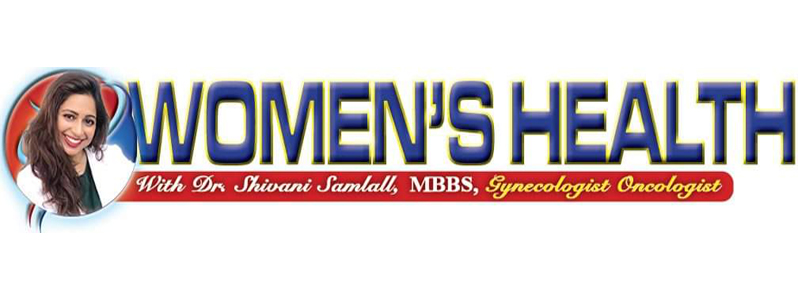Dr. Shivani Samlall. MBBS, Specialist in Obstetrics and Gynecology with a sub-specialty in Gynecology Oncology, with over 10 years of practice. Dr Samlall can be contacted at drshivanisamlall26@gmail.com
COVID-19. THE BIG QUESTION IS — ‘VACCINES OR NO VACCINES’?
MY columns are generally focused on women’s health, after all this is my area of specialty. However, having studied clinical trials and research and seeing the surge of cases due to the new variants and the number of deaths in Guyana and other parts of the world, I have decided to dedicate this column to discuss COVID -19 and the vaccines. It is my hope that I can, in some way help persons to make informed choices when it comes to the COVID-19 vaccines.
THE EFFECTS OF THE PANDEMIC
Let’s first start with the gruesome effects of this pandemic. We have been in it for over a year now. We were horrified as we saw the devastating impact of this disease, on TV, on social media, on the news etc., ripple through country after country. We saw the number of deaths, the effects on the healthcare system, the economy, our families, our lives. We prayed for a cure. We tried (individuals and doctors) different medications, and treatments hoping to cure this deadly disease or even to reduce infection rates, hospitalisation rates, aid recovery and ultimately curb deaths from the disease. We however found that none of these options made significant difference or impact on these things.
COVID 19- VACCINES
Vaccines were developed. We hoped that this was the ultimate solution or “the cure” but found out instead that it wasn’t. We are all disheartened. However, the good news is different studies done in many countries have shown that these vaccines offer many benefits: they reduce infection rates, hospitalisation rates, ICU admissions and death from the disease. In fact, a recent study has shown that the unvaccinated is 17 more times likely to be hospitalised from COVID-19. When I look at all the additional data that is available for the vaccines, my honest opinion is that this is the closest to a cure that we have. More so, how lucky are we as a third world country? Guyana, unlike many countries even first world countries, have access to these vaccines.
VACCINE HESITANCY. WHY ARE WE HESITANT TO TAKE THE VACCINES?
I understand vaccine hesitancy. Trust me, I get it. We are in a different century. We now have access to a diverse set of information. Some of good source, some of bad source. But in research, we are taught to filter information. Reason being, not everything that you read is accurate. Additionally, some might be accurate, but contradict the majority. The general tendency is to be guided by the majority.
Additionally, there must be some trust in our public health system, if we ensure that our children receive their childhood vaccines. We must have some trust in our doctors, if when they recommend that we take chemotherapy and radiotherapy, to cure our cancer, we do so despite the many side effects. The bottom line is, health organisations, scientists, doctors, etc., the very persons who we trust to take care of our health when we are ill, are recommending that we take the vaccines. Who would you be guided by?
I know that they are many myths about the vaccines that are circulating, and which are affecting your decision to be vaccinated. Let’s discuss a few.
1. Myth: The COVID-19 vaccines are not safe because of the quick production.
Fact: Research on related coronaviruses started many years before COVID-19 was discovered. Also, because they are mRNA vaccines, they are much faster to make than traditional vaccines. However, it’s important to note that, despite this, these vaccines went through the same testing (three phases of clinical trials) and rigorous safety standards as all other vaccines. These vaccines would not have been approved unless they were proven to be safe and effective.
2. Myth: COVID-19 vaccines cause you to test positive for COVID-19.
Fact: The vaccines do not contain live virus strain and will not cause you to contract the virus nor cause you to test positive for it.
3. Myth: These mRNA vaccines have dangerous ingredients.
Fact: This is not true. The mRNA vaccines are free of preservatives and only contain mRNA, a fatty coating layer to protect the mRNA, PEG (polyethylene glycol), and a combination of salts, sugar, and water.
4. Myth: It’s best to wait to get the vaccines.
Fact: Waiting for the vaccines places you at risk of contracting the virus and its variants and getting severely ill and dying.
5. Myth: People with underlying medical conditions should not take the vaccines.
Fact: These people are of a greater risk of severe illness and death due to the COVID-19 virus and its variants and should therefore protect themselves by being vaccinated.
6. Myth: I already had COVID-19 so I do not need the vaccines.
Fact: You can get the infection more than once. Getting vaccinated will provide added protection against severe illness and death.
7. Myth: The vaccines control the general population by microchip tracking.
Fact: There is no microchip in the vaccines and the vaccines cannot tract people or gather personal information.
Conclusion: Many studies have shown that vaccines continue to play a critical role in preventing serious COVID-19 illness and remain safe and highly effective in preventing hospitalisations and death. While there is no cure for COVID-19, the vaccines together with social distancing, wearing face masks and sanitising regularly, will be our best bet in surviving this pandemic. Remember no one is safe. So, let us all make the right decision before it’s too late.




.png)









